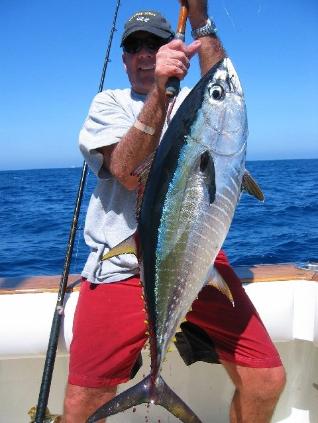Several regional and national recreational fishing organizations submitted comments to NOAA Fisheries opposing the listing of Pacific bluefin tuna as endangered under the Endangered Species Act.
The letter was in response to a petition filed earlier this year to ban all fishing, including recreational fishing, for Pacific bluefin tuna in U.S. waters.
The American Sportfishing Association, the Coastal Conservation Association, the Coastside Fishing Club and the Congressional Sportsmen’s Foundation argue in a letter that an ESA listing is not applicable, would be ineffective management policy and would unfairly harm sportfishing and related industries on the West Coast, especially in Southern California.
“Only 1.5 percent of Pacific bluefin tuna are harvested by U.S. anglers,” ASA government affairs vice president Scott Gudes said in a statement. “Almost all bluefin tuna are, in fact, caught by foreign commercial fishermen overseas. The petition, if approved, would penalize recreational fishermen and the sportfishing industry while providing no meaningful benefit to Pacific bluefin tuna stocks.”
The U.S. government, NOAA and the international organizations responsible for the management of tuna — the Inter-American Tropical Tuna Commission and the Western and Central Pacific Fisheries Commission — took action several years ago to reduce fishing pressure and conserve tuna fisheries.
The ASA said data show the stocks are rebuilding.
“We must rebuild the Pacific bluefin tuna stock, and management measures now show progress,” said Marc Gorelnik, a member of the Pacific Fishery Management Council. “The reality is that the Pacific bluefin tuna is not in danger of extinction now or in the foreseeable future and a listing will not meaningfully accelerate stock rebuilding.”
Bluefin tuna are an important species to offshore recreational fishing in California, along with other types of tuna and open-ocean migratory fish. The tuna sportfishing industry along the Southern California coast generates more than $100 million in annual spending.
“If this ESA listing is successful, recreational fishermen, guides and companies along the West Coast face possible negative impacts, including losses of revenue,” Coastal Conservation Association California chapter president Bill Shedd said.

